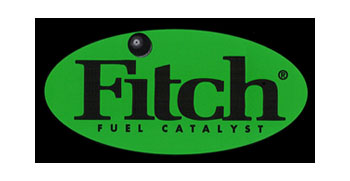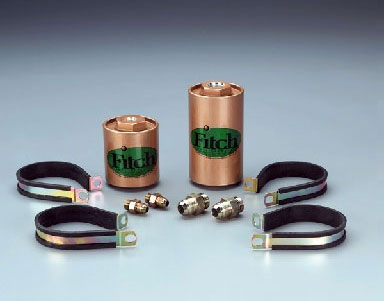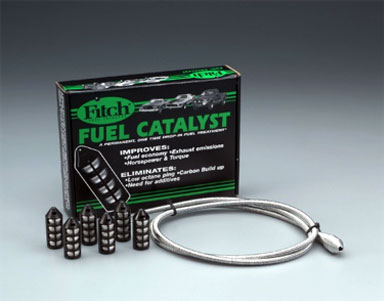Fitch Fuel Catalyst
We are Authorized Dealers, Manufacturer, Supplier, Exporter of Fitch Fuel Catalyst from Pune, Maharashtra, India. We also provide AMC (Annual Maintenance Contract) Services, Repairing Services, Installation Services, Commissioning Services for this product.
Long Term Permanent Fuel Treatment, Guaranteeing Optimal Engine Efficiency – Reducing Fuel Consumption & Emissions.


In Line
- Installed in Stationary Equipment
(Furnaces, Boilers, Ovens). - Warranty of 50,000 operating hours.

Drop In
- Installed in Moving Vehicles.
- Warranty of 400,000 kilometers.
Benefits of Fitch :
- Fuel saving ranges from 5% to 12%.Payback period is less than a year.
- Reduction in Air Pollution.
- Installation is simple and doesn’t consume much time.
- Maintenance free.
- Increases the life of engine. This brings down the cost of renewal substantially and will reduce the capital investment.
- Increases HP / kVA rating of the engine/boilers.
- An approved pollution control device.
- Besides saving fuel, it reduces CO2.
- Keeps fuel fresh suppressing organic growth.
- Reduces the Heat up time.
Working on Oil Fuel :
- The structure of a Hydrocarbon molecule affects how it performs in a combustion chamber.
- Studies available through literature research have demonstrated that straight molecules, ring molecules and highly branched molecules behave differently in the combustion process.
- The Fuel Catalyst developed is technically referred to as a Heterogeneous Metallic Alloy Catalyst (HMAC). Its commercial trade name is the “Fitch Fuel Catalyst”.
- This Fuel Catalyst alters the structure of Hydrocarbon molecules.
- Thus, the presence of a Fuel Catalyst can change an engine’s performance in terms of fuel economy and emissions.
Working on Gaseous Fuel :
- The Fitch Fuel Catalyst induces reactions in the gas at or near the point of use and is easily incorporated into a heating system.
- This catalyst is novel in that it induces reactions in fuels at temperatures far below, from what petroleum catalysts have historically been known to function.
- Reactions that the fuel catalyst induces are beneficial, and when placed in fuel lines increases combustion efficiency while reducing emissions.
- These results occur because fuels are reformed and often resuscitated to organic structures that combust fully.
- These improvements to fuel result in lower fuel consumption and also result in reduced maintenance. These are confirmed by DART MS analysis and the Suib Institute at the University of Connecticut.
- The Fitch Fuel Catalyst process converts the water and non-methane components into molecules with more oxygen and hydrogen which have more energy of combustion.
